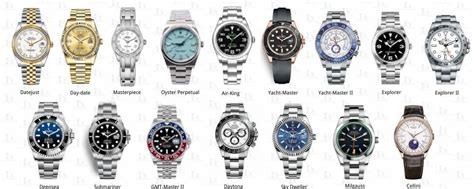are rolex watches tax deductible | can you write off Rolex watch
$158.00
In stock
The allure of a Rolex watch is undeniable. It's a symbol of success, a testament to hard work, and a tangible investment (though the investment aspect is complex and not always guaranteed). The hefty price tag, however, often leads to the tempting question: Are Rolex watches tax deductible?
The short and blunt answer, in most everyday scenarios, is no. While the idea of writing off a Rolex watch might seem appealing, the IRS has specific rules and regulations regarding deductible expenses, and luxury items like Rolex watches rarely fit the criteria. It's far better to understand this now, before you invest a significant sum and find yourself facing an unwelcome audit.
This article will delve into the intricacies of tax deductions, explore potential (and often tenuous) arguments for deducting a Rolex, and discuss the various scenarios where taxes *do* apply to the purchase, sale, or inheritance of a Rolex. We'll also touch upon related topics like finding a "Rolex watch tax free" deal (spoiler alert: it's complicated), the nuances of buying a Rolex without paying taxes (more complications!), and even address some… well, let's just say *unconventional* search terms like "Rolex underwear taxable" (yes, we're going there).
Understanding Tax Deductions: The Basics
Before we dive into the Rolex-specific details, let's clarify what a tax deduction actually is. A tax deduction reduces your taxable income, which in turn lowers the amount of tax you owe. However, to qualify for a deduction, an expense must generally be considered "ordinary and necessary" for your trade or business. This is where the Rolex issue becomes problematic.
The IRS defines "ordinary" as something that is common and accepted in your industry, and "necessary" as something that is helpful and appropriate for your business. In most professions, a Rolex watch simply doesn't meet these criteria.
Why a Rolex Usually Isn't Tax Deductible: The Personal Use Problem
The primary reason a Rolex isn't typically deductible is because it's considered a personal expense. The IRS generally disallows deductions for expenses that provide a personal benefit, even if they are also related to your business.are rolex watches tax deductible
Think about it this way: while wearing a Rolex might make you feel more confident and project an image of success, it primarily serves a personal function – telling time and accessorizing your outfit. It's difficult to argue that owning a Rolex is essential for performing your job duties in most professions.
Potential (and Limited) Exceptions: When a Rolex *Might* Be Deductible
While the general rule is that Rolex watches are not tax deductible, there are a few highly specific and unlikely scenarios where a deduction *might* be possible. However, these are niche situations and require careful documentation and justification:
* Professional Entertainers or Performers: In some cases, a professional entertainer (actor, musician, etc.) might argue that a Rolex is part of their costume or stage persona. If the Rolex is specifically required for a role or performance and is not worn outside of that context, a deduction *might* be considered. However, the IRS would likely scrutinize this claim heavily. You'd need strong evidence demonstrating the Rolex's integral role in your professional performance and that it's not used for personal enjoyment.
* Business Promotion (Highly Unlikely): If a Rolex is used *exclusively* for promotional purposes – for example, as a prize in a business contest that directly generates revenue – you *might* be able to argue for a deduction. However, the Rolex would have to be clearly and demonstrably used for business promotion, and you'd need to prove a direct link between the Rolex and increased business activity. Simply wearing a Rolex to networking events is not sufficient justification.
* Gift to an Employee (with Limitations): You *might* be able to deduct the cost of a Rolex as a gift to an employee, but there are strict limitations. The IRS generally limits deductible gifts to employees to $25 per person per year. So, unless you're giving away a very, very, *very* inexpensive (and likely fake) Rolex, this isn't a viable option. Furthermore, even a gift that exceeds $25 could be considered compensation, which would be taxable to the employee and deductible to the employer as a business expense.
Important Considerations for any Potential Deduction:
If you believe your situation falls into one of these potential exception categories, it's crucial to consult with a qualified tax professional. They can assess your specific circumstances and provide personalized advice.
Even in these scenarios, you'll need to maintain meticulous records, including:
* Proof of Purchase: The original receipt showing the purchase price and date.
* Documentation of Business Use: Detailed records demonstrating how the Rolex was used exclusively for business purposes.
* Photographs and Videos: Evidence showing the Rolex being used in performances, promotional events, or other business-related activities.
* Expert Appraisal (Potentially): In some cases, you might need an appraisal from a qualified appraiser to establish the Rolex's fair market value.
The Tax Implications of Buying, Selling, and Owning a Rolex
While you typically can't deduct the *purchase* of a Rolex, taxes do play a significant role in the ownership lifecycle of this luxury item.
Additional information
| Dimensions | 7.7 × 2.2 × 3.5 in |
|---|









